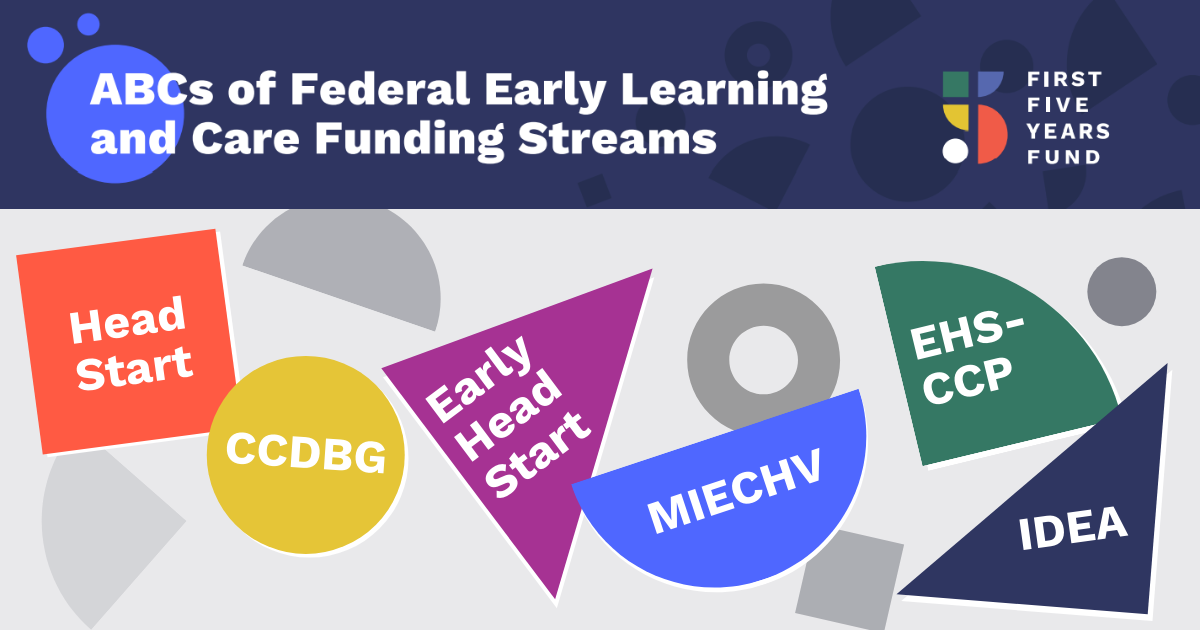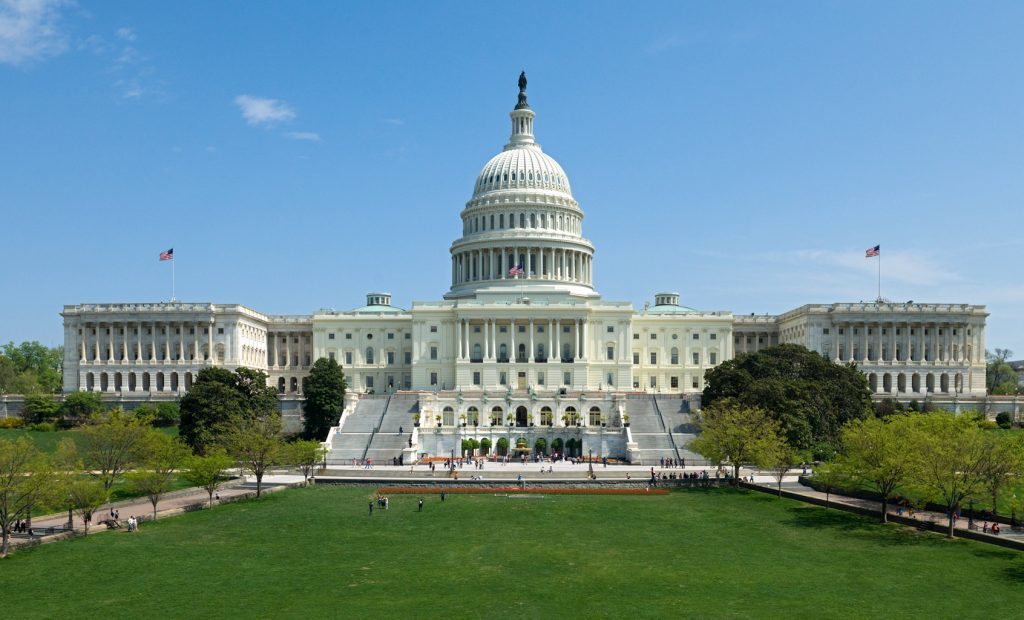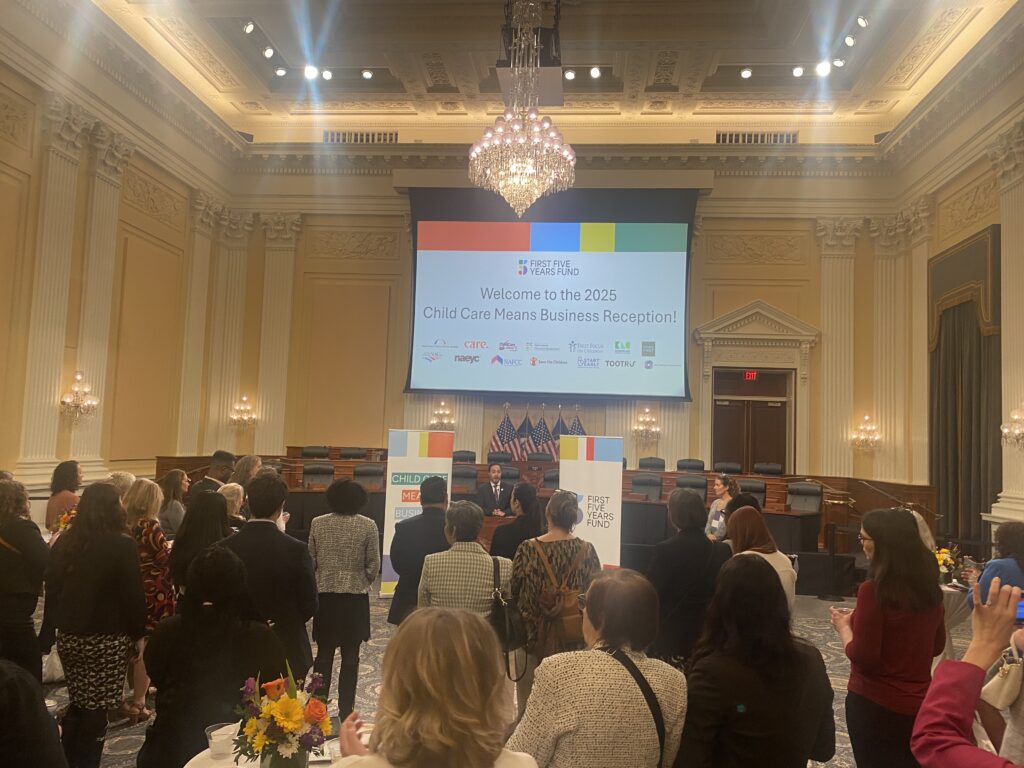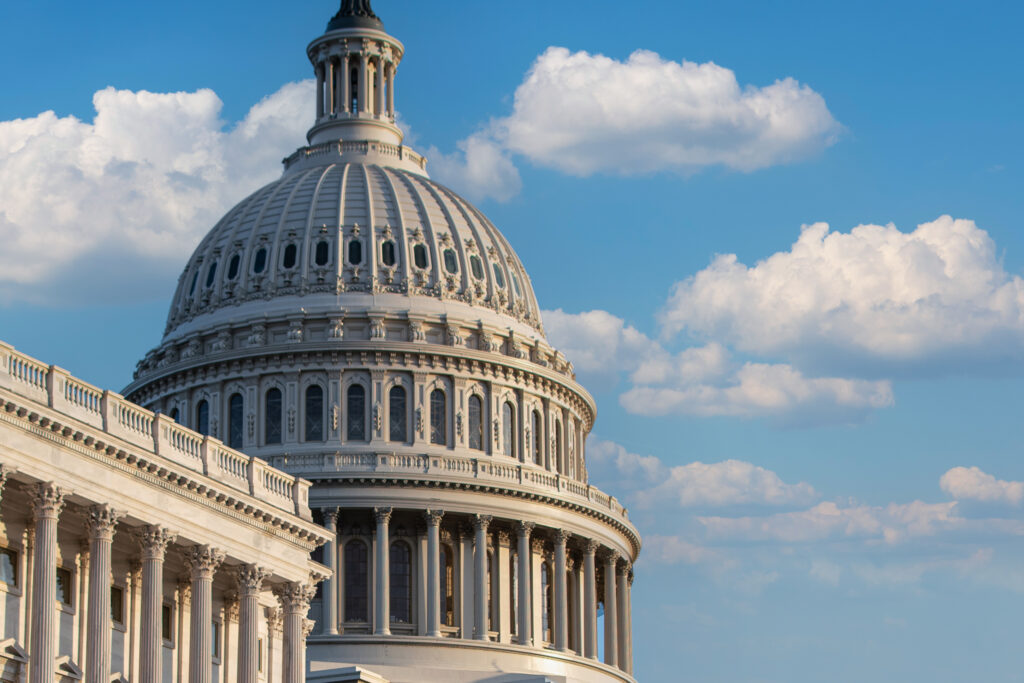FFYF Hosts Congressional Briefing on Federal ECE Programs Ahead of FY22 Appropriations

On Tuesday, the First Five Years Fund hosted a virtual briefing on federal funding for early learning and care programs, including the Child Care and Development Block Grant (CCDBG) program, Head Start and Early Head Start, and the Preschool Development Grant Birth through Five (PDG B-5) program. Every year, millions of low-income children from birth through age five benefit from the array of federal early learning and care programs. While programs may occur in different settings and have different requirements, together they form an effective mixed-delivery system that supports the care, education, and healthy development of children living in poverty, prioritizing parental choice and children’s individual needs. Without question, investments in these vital programs provide a critical foundation for our nation’s child care infrastructure.
In recent years, federal early learning and care programs have received increased funding with bipartisan support from both Congress and the White House, which has helped to extend the reach of state and federal programs to serve more families and improve the overall quality of care. Still, too many families struggle to find and afford high-quality care that meets their needs, and the COVID-19 pandemic has only exacerbated these challenges. As the FY2022 appropriations process gets underway, Tuesday’s briefing offered members of Congress and their staff insights about the importance of the federal early learning and care programs – and the need for robust funding to ensure their success.
Moderated by FFYF’s Director of Government Affairs, Sarah Rubinfield, the briefing featured a panel of experts and leaders in the early learning field, providing context about how the various programs support children, families and communities, along with the success and challenges they’re seeing across the country. Panelists included:
- Anne Hedgepeth, Senior Director of Federal and State Government Affairs, Child Care Aware of America
- Dr. Sarah Vanover, Director, Division of Child Care, Commonwealth of Kentucky
- LaTanya Wynn-Hall, M.S. Regional Executive Director, Duval Head Start/Early Head Start, Lutheran Services Florida
- Dr. Barbara J. Cooper, Secretary, Alabama Department of Early Childhood Education
WATCH THE FULL BRIEFING HERE:
Ms. Hedgepeth spoke about the underlying issues with the early learning and care system, including lack of access to affordable, high-quality care, and the declining number of providers, which predated the COVID-19 pandemic. Since March 2020, the supply of child care has declined considerably, and parents have struggled to find care and return to work. COVID-relief legislation has provided funding to stabilize the child care industry, however, she noted these dollars do not reduce the need for increases in annual appropriations. While relief dollars help to meet needs in the short term, annual appropriations help us lay the track for the future.
Dr. Vanover provided an overview of the role of CCDBG funding, which, in addition to helping families pay for high-quality care, covers the cost of background checks for staff, monitoring the safety of facilities, and provides training and support to providers to increase the overall quality of care. While states provide a match, federal dollars are the largest source of funding, and still, consistent with data nationwide, less than 20% of eligible children in Kentucky received subsidies. Without federal funds, states can’t help families to find and afford high-quality care, or support providers in building and improving their businesses.
Ms. Wynn-Hall thanked Congress for enacting and supporting Head Start, which provides comprehensive services to the most vulnerable children and families, including mental health, dental and nutritional services, and parent engagement. Throughout the pandemic, Head Start has continued to serve children, providing virtual instruction and ensuring families had access to meals and other essentials, as well as access to technology to allow children to participate in online classes. Head Start grantees combine federal funding with state and local funding, but together these funds reach only 36% of children eligible for Head Start and 11% of children eligible for Early Head Start.
Secretary Cooper described Alabama’s experience in receiving a PDG B-5 grant, which allowed them to conduct a needs assessment and design a strategic plan to support both quality care and early learning initiatives with a focus on closing achievement gaps. She emphasized that this grant allowed the State to take a comprehensive approach to its early learning system and facilitated conversations they would not have had otherwise, encouraging them to avoid duplication and to spend dollars more effectively. The revised system seamlessly incorporates early learning into the education to workforce system.
In the subsequent Q&A, panelists discussed the benefits of the federal mixed-delivery system, which allows families to seek out the programs and providers that meet their schedules, their child’s needs, and their preference for the type of setting. Similarly, panelists discussed the importance of engaging parents to help them make the best choice for their families and to build a system that better meets their needs. Additionally, the flexibility of federal programs, when paired with state and local dollars, helps states to make innovative decisions about how to serve families and to create close connections with the communities in which parents live.
Panelists also discussed the needs that exist even after increases in annual appropriations and after supplemental funding was provided in COVID-relief packages. Dr. Vanover expressed her appreciation for the stabilization funding, but is concerned about what will happen when that funding runs out. Providers have invested everything they can to keep going, because they love the work they do, but they will have ongoing needs for years to come. Without these resources, will they have to lay off staff or close their doors? Similarly, she worries about what will happen to families who have relied on subsidies to access care. Will they have to withdraw their children from care and leave the workforce? Other panelists agreed that being able to pay staff more than minimum wage continues to be a concern. They emphasized, however, that this year has demonstrated the resilience of families and providers alike, and they are grateful that Congress continues to invest in early learning and care opportunities knowing that these opportunities can so greatly benefit children and families.
You can find more information about current funding levels and the need for increased appropriations for federal early learning and care programs on our website. Additionally, FY2022 “Dear Colleague” letters can be found here.
Subscribe to FFYF First Look
Every morning, FFYF reports on the latest child care & early learning news from across the country. Subscribe and take 5 minutes to know what's happening in early childhood education.



